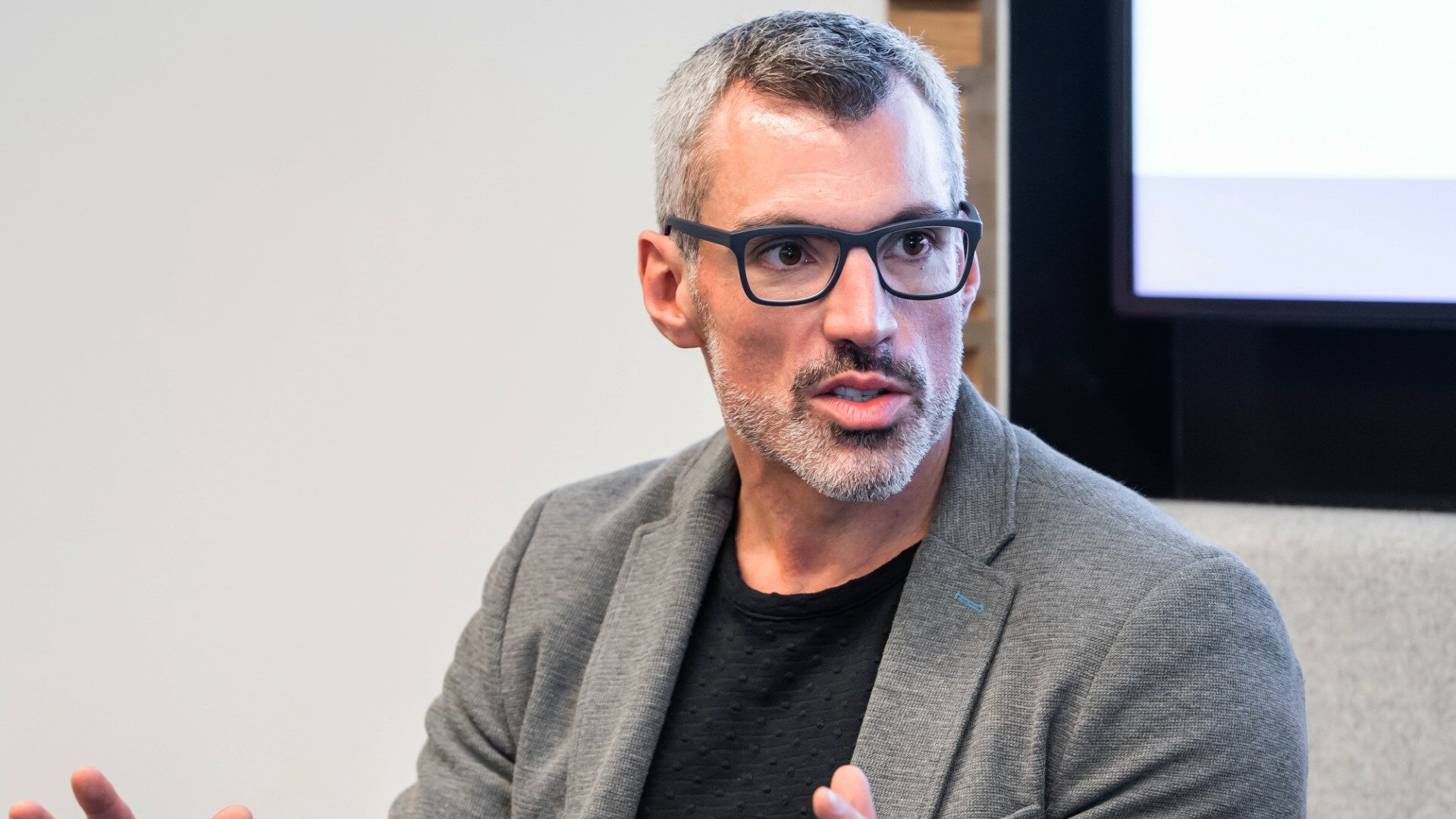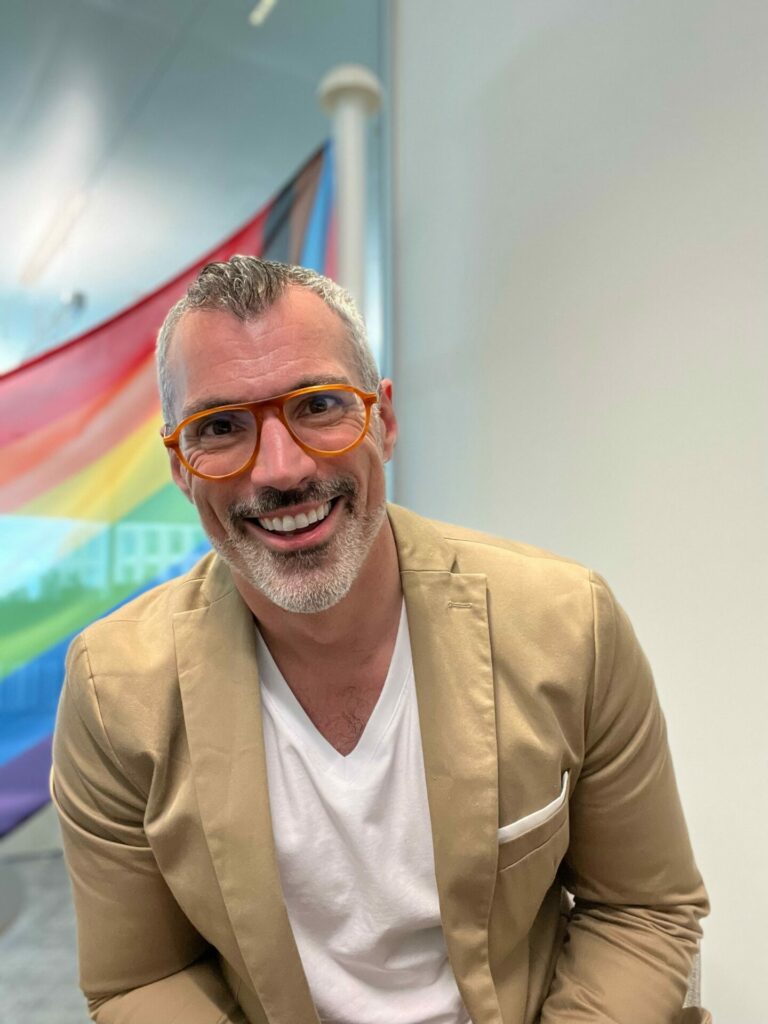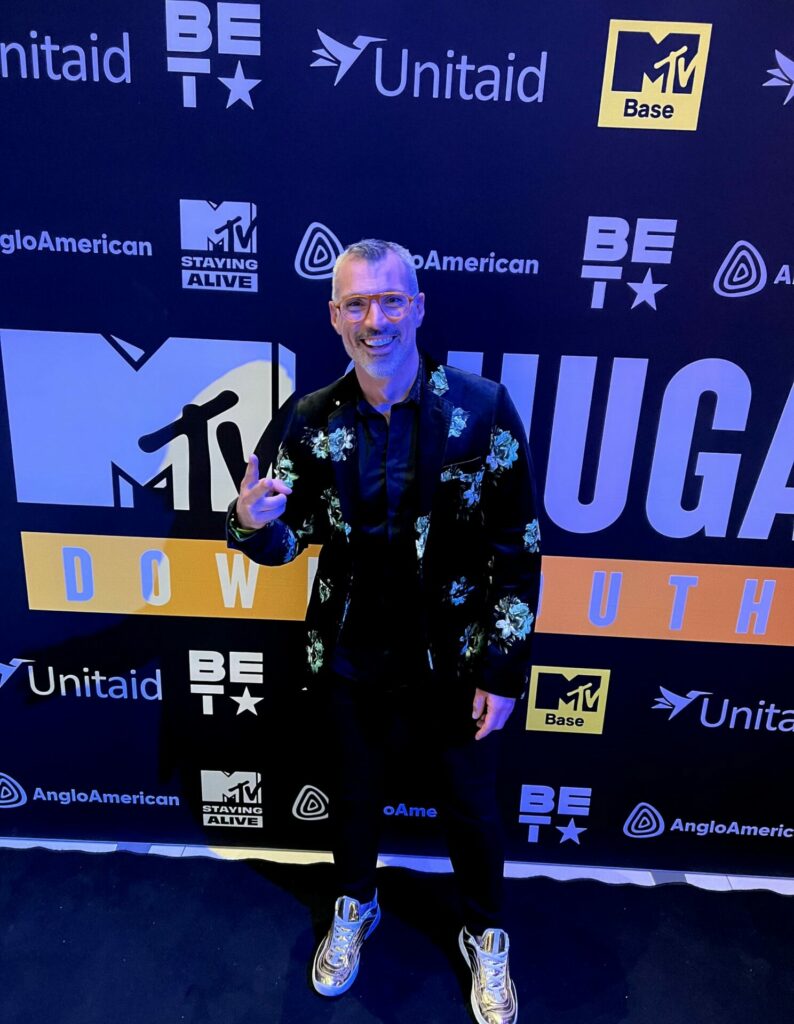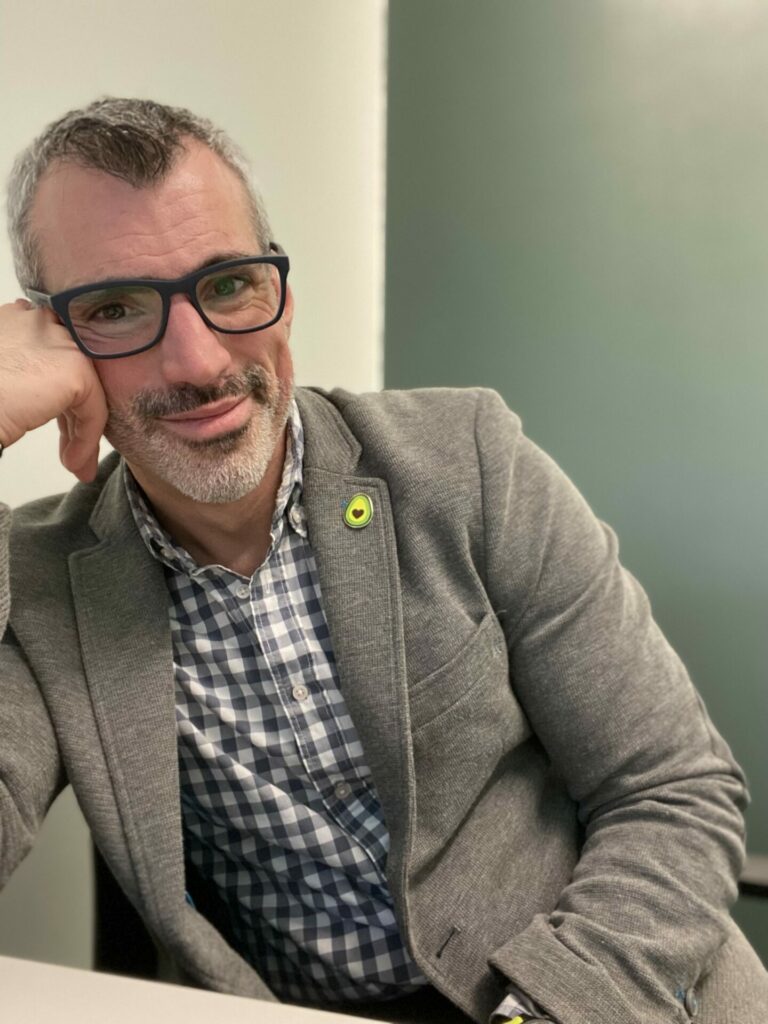Goldman Sachs lawyer Tuvia Borok on single parenting and his secrets to success
Exclusive: "Work-life balance isn’t a term I like. For me, it’s about work-life integration."
By Dale Fox

Single father of one Tuvia Borok has certainly led an illustrious career, from starting out as a flight attendant to put himself through law school in Canada to becoming a senior figure in the world’s second largest investment bank Goldman Sachs as global head of policy and documentation for the global banking & markets division in London.
Here, he shares with Attitude the challenges he’s faced along the way, and how making everyone feel like they belong is the secret to success.
How did you get into law?
It was actually by fluke. I’d always wanted to be a paediatrician, but chemistry was bringing down my GPA [Grade Point Average] and it was impacting my ability to get a scholarship for university. The other challenge I had is I’m quite squeamish about blood and needles, so medicine was going to have to be out! I turned to law simply because my teachers had said that I would do well in it, and my grandfather, whose name I carry, was a lawyer back in Lithuania many, many years ago during the Holocaust.
So there’s a family connection?
Yes, but I never met my grandfather, as he passed away when my mother was young. My parents are from the former Soviet Union — my mother is from Lithuania and my father is from Latvia. They both emigrated with their families, as many Jewish families did after the war, to Israel, where I was born. We later moved to Germany, and I started my schooling there until there was a rise in anti-Semitism during the 80s.

My mother worked at a Jewish day-care [centre], and there were bomb threats and police had to be there every day. And so, my parents decided that Germany was not going to be the place for us.
Where did you go next?
We moved to Canada — I didn’t speak a word of English then — in the middle of the school year. I used to speak German fluently before I learned English, but when I moved to Canada, I had to learn English and I had to learn French. It was 17 years in Canada before I came across the pond to do a year out and a grad degree, and 19 years later, I’m still here! I was also based in Russia for almost a year and a half, which was interesting as an out professional at a time when [being gay] was very much not accepted and quasi-illegal.
What took you to Russia?
I used to do a lot of emerging markets finance work and Russia was my emerging market because I spoke the language fluently. One of my biggest clients was a bank that did a lot of work out there. They had just set up an office in Russia, and I was asked to go out to Russia as well because the law firm I worked for had an office in Moscow. That was back in 2008 and it was just before the propaganda laws came in.
How was life for you in Russia?
One of the biggest things that I’m proud of from an authenticity perspective is I was not prepared to go back into the closet when I moved there. I spent enough years in the closet, and I was not going to go out there unless I could be who I am in the office. On the street, it wasn’t the safest place. But in the office, I really felt I needed [to be myself]. My view was that if the team couldn’t deal with it and wasn’t OK, then I wasn’t going to come because it was just not going to be a team environment. I was probably the first out person that they ever had working there.
Tell me about your journey at Goldman Sachs
I originally applied for Goldman Sachs on a two-year analyst programme for graduates. That was back in 2005 after I did my degree at Oxford. I was very much beyond a graduate because I was already a qualified lawyer back in Canada, but I wasn’t [qualified] for the UK. I was unsuccessful making it into the analyst programme.

In 2011, I was recruited by Goldman Sachs away from a competitor, and I’ve been there 12 years now. I headed up a team in the legal division for a number of years, and three years ago, after 17 years of practising law, I did a career pivot and moved over to the business side, and I’d say it’s been absolutely phenomenal.
What is your style of leadership?
Many leaders forget about the happiness factor. People spend more hours committed to me and to the organisation than they do with their family and those they choose to spend their lives with. If you’re not prepared to see them as more than just the job they do, they’re going to be unhappy. And if they are unhappy, they’re not going to be able to be their best. If you’ve got happy people and you’ve got trust, I think that’s the secret sauce.
How do you make your people happy?
A solid business strategy is super important but I’m a firm believer that a people strategy is just as, if not more, important. If your people don’t trust you as a leader, they’re never going to come on the journey to make your business strategy a success. It’s about making sure that everyone feels that they belong for whoever they are. Plus, it’s being authentic as whoever you are and [being] recognised for whatever unique value you bring. That’s what ultimately drives the trust and the happiness, that focus on a people strategy and actively thinking about your people.
How has being LGBTQ+ impacted your career?
When I was applying for the equivalent of internships in my first year of law school, I had an interview with one of the leading Wall Street law firms. I was told that someone like me would never succeed in law, and that instead I should stick to “flying the friendly skies”, as I was a flight attendant at the time to pay for school. [Due to] my mannerisms and everything else, people took a judgement call on me and took a view that I wouldn’t succeed.
You’re a single father. How do you balance that with your career?
Work-life balance isn’t a term I like. For me, it’s about work-life integration. What that means in practice is that I have a whole host of non-negotiables when it comes to my son, and I’ve found a rhythm to the juggling act that I do as I try to be the best parent that I can be. I’m more successful some days over others, while also staying true to my career aspirations. You’re never going to have 100 per cent of everything, so you need to figure out what are your biggest priorities at any point in time and understand that those are going to fluctuate.
Does your son want to follow in your footsteps?
He thinks he wants to be a litigator. He very much takes pride in out-negotiating me on everything. Nothing is ever a “Yes, Dad”; everything has now become a negotiation. But I love that he’s got fire in his belly and wants to right the wrongs in this world. He has a huge propensity for what’s fair, and he wants to argue for it.

He’s 13 and the fact he’s got that drive to want to change the world, all power to him. He has grown up knowing what I advocate for, and do, in the diversity space. I think inclusion of diversity has become so normalised for him that he tends to talk about the fact that we don’t need to talk about it so much because he knows it is just a reality now.
If you had to choose another career, what would it be?
I’ve always wanted to have my own café and bakery. I do bake, so brownies would have to feature. I’ve always wanted a place that would be really small — intimate and almost like a second home for people when they start their day, so it wouldn’t be an all-day thing. It would very much be open mornings only. I’m one of these super happy-clappy people, so I see myself as being that enthusiastic energy-giver first thing in the morning.
Hopefully, if I wished people a beautiful day as I handed them their first cup of coffee, then maybe I could get people to pause for a moment and feel good about the world. That dream has never dissipated, so maybe that’s going to be part of my retirement plan.
